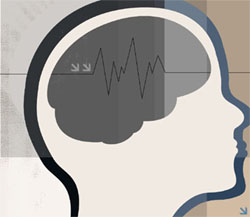Apr 13, 2025
Apr 13, 2025
 How do fishes swim and frogs hop? How do children grow? How do astronauts move in space? What kind of chemical imbalances cause various mental illnesses? Is there a cure for the dreaded Alzheimer's and Parkinson's disease? How do you improve learning and memory? If you want to actually find the answers to these questions work hard to be a neurobiologist.
How do fishes swim and frogs hop? How do children grow? How do astronauts move in space? What kind of chemical imbalances cause various mental illnesses? Is there a cure for the dreaded Alzheimer's and Parkinson's disease? How do you improve learning and memory? If you want to actually find the answers to these questions work hard to be a neurobiologist.
Neurobiology is 'the branch of biology that deals with the anatomy and physiology and pathology of the nervous system'. To put it more simply neurobiology is 'the biological study of the nervous system'.
Personality Traits
If you find genuine interest in observing animals in their natural habitat, zoos, aquariums and museums and reading books on natural history, biology and natural science- neurobiology may be the career choice for you.
Where to Study
Professor Vijaylakhsmi Ravindranath, Director of National Brain Research Centre of Haryana, advises, 'To be a neuro-biologist, first an undergraduate degree is needed in any of the sciences be it life science, physics or mathematics. A Masters Degree must be attained in a neuro-science programme before enrolling in a PhD programme in neuro-biology. NIMHANS (the National Institute of Mental Health) in Bangalore and National Brain Research Centre in Haryana are places where one can pursue studies in this field.' Undergraduate degrees in biology from any university will set you up well for further education in neuro science.
Nature of Work
As a neurobiologist one studies the nervous system and its development, structure and physiology. The neurobiology of disease involves medical research in understanding diseases associated with the nervous system. Neurobiologists study the cause and treatment of degenerative diseases like Alzheimer's, Parkinson's, Multiple Sclerosis, Epilepsy, strokes, spinal cord injuries and mental illnesses.
To discover how the human nervous system generates behavior neurobiologists often study animals that have exaggerated or specialized sensory, motor or behavioral capacities. Eg: Leeches, molluscas and arthropod nervous systems may have relatively few large neurons- their function may be studied at the level of specific nerve cells which isn't possible in large mammalian nervous systems with billions of cells. Studies like these may in turn provide essential information for understanding mammalian neural function providing a research foundation targeted at finding cures for neurological disorders. In the process neurobiologists also find out interesting facts about animals' locomotion, predation, feeding, reproduction, defense, aggression and escape.
Employment Avenues
With a degree in neurobiology may give you the foundation of a career in psychiatry, neurosurgery or neurology. One may look for employment in pharmaceutical laboratories, education faculties, general research laboratories, government agencies, and space exploration facilities. Professor Vijaylakhsmi Ravindranath adds, 'More pharmaceutical companies in India are going in for drug discovery for mental disorders. In foreign nations, specially the US, the scope is even brighter.'
10-Dec-2006
More by : Pallavi Bhattacharya